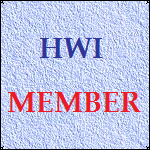Post by roger on Jul 23, 2005 16:40:03 GMT
I have just found this on Wikipedia:
en.wikipedia.org/wiki/Pokarekare_Ana
Pokarekare Ana
From Wikipedia, the free encyclopedia.
Pokarekare Ana is a traditional New Zealand love song, probably communally composed about the time World War 1 began in 1914.
East Coast Maori song-writer Paraire Tomoana, who polished up the song in 1917 and published the words in 1921, wrote that it emanated from the North of Auckland and was popularised by Maori soldiers who were training near Auckland before embarking for the war in Europe.
There have been numerous claims and counterclaims regarding authorship over the years. Although the matter has never been definitively settled, guardianship of the words and music are held by the family (descendants) of Paraire Tomoana.
Although the Maori words have virtually remained unaltered over the decades, with only the waters in the first line being localized, there have been many different English translations.
Originally sung in a subtle 3/4 (waltz) time, since World War 2 it has been heard in a more plodding 4/4 time.
The song is performed, usually badly in Maori, wherever Kiwis congregate anywhere in the world. It is very popular in New Zealand and is sometimes called the country's unofficial national anthem, although it has been adapted to commercial advertising and by sporting groups.
Late in 2003 Pokarekare Ana featured on the Pure album released worldwide by the young New Zealand soprano Hayley Westenra. Pure is the fastest selling debut album ever on the UK classical charts. Internationally known New Zealand opera singers to previously record and perform Pokarekare Ana are Dame Kiri Te Kawana and Dame Malvina Major. Dozens of other artists throughout the world have recorded this song.
New Zealand soldiers taught it to Korean children during the 1950-53 war, and it is now much sung in South Korea.
A schoolyard parody, O curry curry arna, I found a squashed banana, is well known to New Zealand school-children, and was being sung in Melbourne playgrounds in the mid-1970s.
The tune of Pokarekare Ana has been borrowed for an Irish wedding song A Mhuire Mháthair sé seo mo ghuí.
So now you know!
Roger
en.wikipedia.org/wiki/Pokarekare_Ana
Pokarekare Ana
From Wikipedia, the free encyclopedia.
Pokarekare Ana is a traditional New Zealand love song, probably communally composed about the time World War 1 began in 1914.
East Coast Maori song-writer Paraire Tomoana, who polished up the song in 1917 and published the words in 1921, wrote that it emanated from the North of Auckland and was popularised by Maori soldiers who were training near Auckland before embarking for the war in Europe.
There have been numerous claims and counterclaims regarding authorship over the years. Although the matter has never been definitively settled, guardianship of the words and music are held by the family (descendants) of Paraire Tomoana.
Although the Maori words have virtually remained unaltered over the decades, with only the waters in the first line being localized, there have been many different English translations.
Originally sung in a subtle 3/4 (waltz) time, since World War 2 it has been heard in a more plodding 4/4 time.
The song is performed, usually badly in Maori, wherever Kiwis congregate anywhere in the world. It is very popular in New Zealand and is sometimes called the country's unofficial national anthem, although it has been adapted to commercial advertising and by sporting groups.
Late in 2003 Pokarekare Ana featured on the Pure album released worldwide by the young New Zealand soprano Hayley Westenra. Pure is the fastest selling debut album ever on the UK classical charts. Internationally known New Zealand opera singers to previously record and perform Pokarekare Ana are Dame Kiri Te Kawana and Dame Malvina Major. Dozens of other artists throughout the world have recorded this song.
New Zealand soldiers taught it to Korean children during the 1950-53 war, and it is now much sung in South Korea.
A schoolyard parody, O curry curry arna, I found a squashed banana, is well known to New Zealand school-children, and was being sung in Melbourne playgrounds in the mid-1970s.
The tune of Pokarekare Ana has been borrowed for an Irish wedding song A Mhuire Mháthair sé seo mo ghuí.
__________________________________________
So now you know!
Roger






